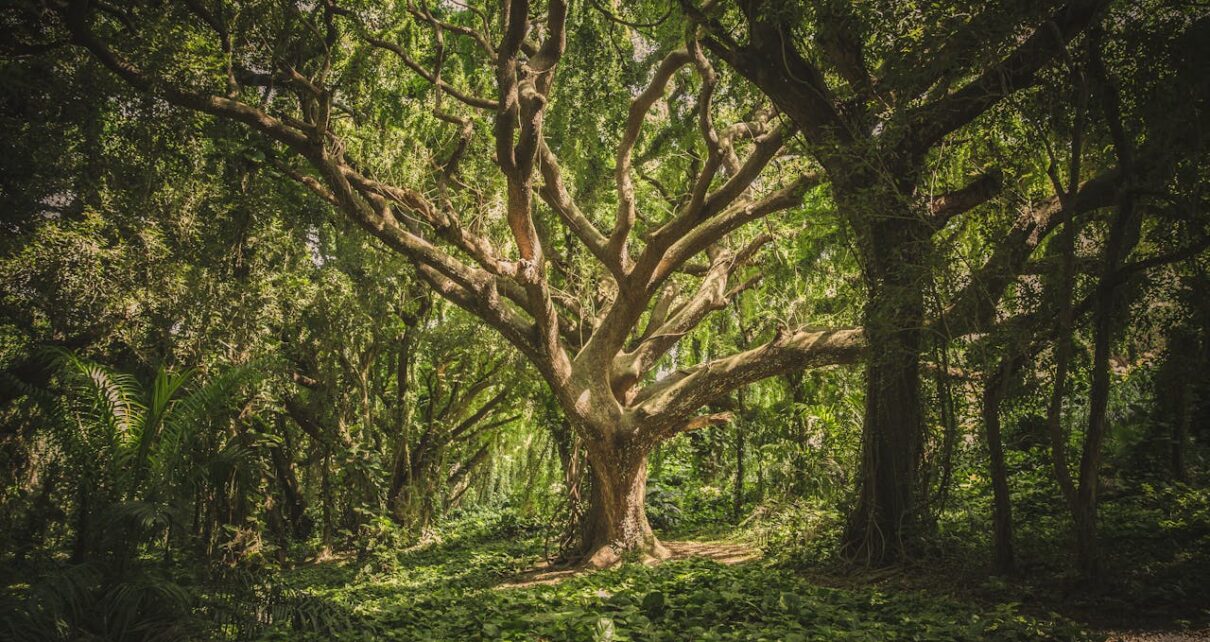With the surge in popularity of psychedelic retreats, new options are emerging rapidly—almost as if they’re popping up like mushrooms. However, not all retreats offer the same level of care, safety, and foundation to ensure a transformative and legal experience. It’s crucial to choose wisely, as a retreat with a strong focus on preparation, guidance, and integration will significantly enhance the benefits of your psychedelic journey. Here’s what to consider when selecting the right retreat for your personal goals.
1. Clarify Your Goals and Evaluate Preparation Practices
- Identify Your Personal Objectives: Before embarking on a psychedelic retreat, it’s important to be clear about what you hope to achieve. Are you seeking emotional healing, spiritual growth, creativity enhancement, or a new perspective on life? Understanding your primary goals will help you select a retreat that aligns with your unique needs.
- Preparation and Intention Setting: A well-structured retreat includes a comprehensive preparation phase that goes beyond merely attending a ceremony. This preparation often involves intention-setting, mindfulness practices, and techniques for navigating the experience. Setting a clear intention is essential for directing your journey and maximizing the insights gained. Look for retreats that prioritize preparation and readiness as part of a structured process.
2. Consider the Type of Retreat: Solo, Private Group, or Open Group
- Solo Retreats: Ideal for those seeking a deeply personal and introspective experience. Solo retreats offer undivided attention from facilitators, with every aspect tailored to your unique goals. If privacy and focused guidance are important to you, a solo retreat may be the best choice.
- Private Group Retreats: For those who wish to share the experience with a partner, close friends, or colleagues, private group retreats offer a balance between personalized care and shared exploration. The collective energy can enhance the transformative impact while still providing individual attention.
- Open Group Retreats: If you value the energy of a small community and want to connect with like-minded individuals, open group retreats are a great option. These typically involve a curated selection process to ensure a harmonious group dynamic, offering shared growth without sacrificing personal support.
3. Assess Safety Measures and Legal Foundations
- Beware of Emerging Retreats: With psychedelic retreats becoming more mainstream, many new offerings are emerging quickly. Unfortunately, not all of them are built on a solid foundation of safety and legality. It’s essential to do thorough research to ensure the retreat operates within legal frameworks and has established protocols for participant well-being.
- Legal Considerations: Choose a retreat that operates in a country where the substances used are legal, such as psilocybin retreats in the Netherlands. This ensures you won’t have to worry about legal risks during your experience.
- Safety Protocols: Make sure the retreat has clear protocols for medical emergencies, appropriate dosage, and trained facilitators who understand the substances being used. Pre-screening processes for physical and mental health can also indicate a retreat’s commitment to safety.
- Qualified Facilitators: Experienced facilitators with training in psychology, therapy, or guiding psychedelic experiences are essential for managing the journey. Look for retreats where facilitators have complementary skills, such as breathwork and mindfulness techniques, to support you throughout the process.
4. Understand the Importance of Set and Setting
- Mindset Preparation (Set): The “set” refers to your mindset going into the retreat. A quality retreat will help you prepare mentally and emotionally, creating a foundation of trust and openness. This is often achieved through techniques such as meditation, coaching, or self-reflection exercises.
- Physical Environment (Setting): The “setting” encompasses the external environment where the retreat takes place. Look for retreats in serene, natural surroundings that are free from distractions. A peaceful setting enhances the safety and effectiveness of the psychedelic experience, allowing for deeper introspection.
5. Choosing the Right Guide
- The Role of the Guide: Your guide plays a central role in the retreat experience, shaping how the journey unfolds and supporting you through challenging moments. A guide who builds trust and creates a safe space will help you feel secure enough to fully surrender to the experience, which is essential for accessing deeper insights.
- Qualities to Look For: Seek a guide who is empathetic, non-judgmental, and experienced in guiding psychedelic journeys. It’s important that they have formal training in the therapeutic use of psychedelics, along with personal experience, which enables them to relate to your journey on a deeper level.
- Building a Connection: Make sure you feel a personal connection with your guide. This relationship is built on mutual understanding and trust, which are crucial for navigating intense experiences. A pre-retreat “chemistry call” can help determine whether you resonate with the guide’s style and feel safe in their presence.
6. Consider the Personalization of the Experience
- Tailored Approach: Not all retreats are created equal. Some follow a one-size-fits-all model, while others offer fully personalized experiences that take into account your specific goals, preferences, and needs. A personalized approach can significantly enhance the impact of the retreat, making it one of the most valuable experiences of your life.
- Customizable Elements: Check if the retreat allows you to customize elements like the music, meditation practices, or integration techniques. These details can help align the retreat more closely with your personal journey and enhance the overall experience.
7. Focus on Integration Support
- One-on-One Coaching: The most transformative retreats provide one-on-one integration support to help you apply the insights gained during the psychedelic experience to your daily life. Personalized coaching sessions can guide you through the process of making sense of your revelations, helping you to create sustainable changes in your behavior, mindset, and habits.
- Structured Integration Process: Look for retreats that have a structured integration program, which may include regular follow-up meetings, journaling exercises, mindfulness practices, or breathwork. The integration phase is designed to help embed the insights you’ve gained and ensure they lead to lasting positive changes.
- Long-Term Commitment: Effective integration doesn’t happen overnight. The best retreats offer ongoing support to help you continue your personal growth long after the retreat has ended. Dedicated integration coaching can ensure you have access to support as you navigate the process of incorporating your new perspectives into your life.
Conclusion
Choosing the right psychedelic retreat involves more than just finding a convenient location or an appealing price. It’s about selecting a program that aligns with your personal goals, offers comprehensive preparation and integration, and prioritizes safety and legality. As new retreats emerge, it’s crucial to separate the ones that pop up like mushrooms from those with a solid foundation. A trusted guide and a well-thought-out approach to set, setting, and integration can make all the difference in achieving a profound and transformative experience.
For those looking for an example of a retreat that ticks all the boxes, Awayk in the Netherlands offers a tailored approach to preparation, personalized integration support, and a focus on safety, making it one of many options worth considering in your search for a transformative journey.

